Not sure whether to bring a solar panel or power bank on your hike? As one backpacker said, “”It seems like we go through this same question, again and again.” The quick answer is:
For weekend backpacking trips, you probably don’t need any power source other than maybe some spare batteries. For trips 3-7 days, a power bank should be enough to recharge devices. On longer trips where you can’t get to town to recharge, you will need a larger solar panel or a smaller solar panel plus a power bank.
But let’s be clear here: there is no one best power source.
There are simply too many different variables like the season, weather conditions, length of breaks and device power requirements. The technology is also rapidly changing. Battery life is getting better and there are now plenty of options for ultralight power banks and more reliable lightweight solar panels.
Below are the most important things to consider when choosing which backpacking power setup makes most sense for you.
Also read:
What Are Your Power Needs?
Before you even start thinking of whether you need a solar panel or just a power bank, calculate your power needs. You’ll need to calculate the battery capacity of each device as well as its power usage. Based on this, you should be able to figure out how often you’ll need to recharge the device.
By using your devices smartly, you can drastically cut back on power needs. For example,
- A Garmin inReach should last you weeks if you only turn it on when sending messages.
- Bringing a GPS device will use less battery than if you use your phone for navigation.
- Keeping your phone in airplane mode and disabling unnecessary apps will allow the phone battery to last much longer.
Reliability of Solar Panel vs. Power Bank
When it comes to reliability, a power bank is better than a solar panel. You know exactly how much power you have. You can recharge at any time of day, regardless of weather conditions. And power banks do better in bad conditions, such as extreme temperatures, than solar panels.
By contrast, solar panels are notoriously unreliable. If reliability is what you need, then it’s better to bring a massive power bank than a solar panel.
SHTF Factor
When a power bank is dead, it is dead. By contrast, a good solar panel ensures you will eventually be able to recharge your devices. Sure, you might have to wait 2 days for a storm to pass to get enough sunlight to trickle charge your satellite messenger to 3%, but at least you have that option!
In this sense, a solar panel is better than just a power bank for backpacking. I like to call it the “SHTF factor.”
How much should the SHTF factor matter?
It depends.
Would it, for example, completely ruin your trip if your camera battery went dead and you couldn’t take photos until the next recharge at town? If yes, then it’s probably worth the weight of carrying a solar panel. If not, then just bring a power bank.
And, while many backpackers like to believe they are invincible, bear in mind that bad things do happen. It’s not worth shedding 6oz from your pack weight if your safety is put at risk by letting your navigator battery die.
How often will you be able to recharge the power bank?
If you can’t get to town to recharge your power bank, then your only options are to: bring a bigger power bank or use a solar panel. When you do the math, it might be lighter to bring a solar panel.
Is the trail popular?
Here’s something backpackers often forget about when planning power bank recharges: it’s first come, first serve.
While I’ve never had this happen to me, I’ve heard of people having to wait hours for their turn at a wall charger. Some hikers said they ended up paying for motel rooms just so they could recharge devices.
Tip: If you do plan on recharging in town, get an 18w wall charger with two ports. You’ll be able to charge multiple devices much faster (or can share one slot with another backpacker). Also make sure it is slim in profile so you won’t take up two slots.
Weight of Solar Panel vs. Power Bank
Remember that there is such thing as stupid light. It’s not worth shedding a few ounces from your pack if it means your crucial devices might die on you! So weight really shouldn’t be your first concern when choosing between a solar panel and a power bank.
Since weight is always a factor when backpacking though, here are some good guidelines to go by:
- Bring spare batteries unless the weight of all batteries is more than that of a power bank.
- Bring a power bank unless the weight of the power bank is more than that of a reliable solar setup.
Convenience
When it comes to convenience, power banks are usually much better than solar panels.
To use a solar panel backpacking, you really need to lay it out completely flat and have it aimed directly at the sun. Hanging it from your backpack is not a good way to recharge. If you spend most of the daylight hours hiking, then it will be incredibly inconvenient to use solar panels on your hike. You’d have to take the solar panels and devices out on each break to utilize the sunlight.
On the flip side, power banks can be inconvenient on long hikes if it means you’ve got to plan trips to town just to recharge – not to mention the hours you spend waiting for it to recharge.
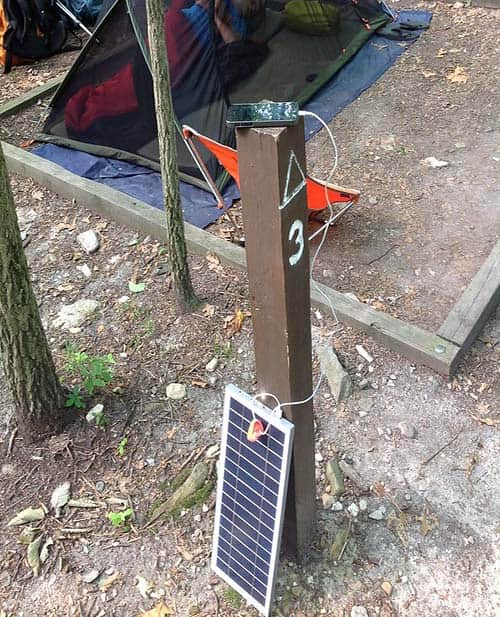
Charging with a solar panel on the AT in the early morning before starting to hike for the day.
Are your devices trickle-charge compatible?
Another aspect of the solar vs. power bank debate that gets overlooked is trickle-charge compatibility. Some devices simple don’t charge well with the variable power from solar.
An iPhone, for example, is notoriously bad for solar charging. If you plug an iPhone into a solar panel to charge in cloudy weather, the screen will start flashing “charging”. This flashing can drain the battery faster than you can recharge it with the solar panel.
You’d need a very large solar panel to directly charge finicky devices in cloudy weather. By contrast, power banks are usually pretty good when it comes to trickle charging with solar. You can get by with a smaller solar panel to charge the power bank, and then use the power bank to charge devices. Yes, you lose some power in the conversion but it still often ends up being more reliable.
Do you love playing with tech toys?
Is it going to annoy you to take out your solar panel during every snack break and aim it towards the sun? Or are you going to have fun calculating how quickly devices charge in different weather conditions and angles? Some of us like our toys. 🙂
How much money you want to invest?
While solar panels are getting cheaper, power banks are still the more budget-friendly option. Just bear in mind that you get what you pay for.
Generic-brand power banks often only deliver 30% to 50% of their advertised capacity. I even had one cheap power bank that suddenly just stopped charging (luckily I wasn’t on a backpacking trip when it happened). The good brands of power banks still won’t deliver 100% of their advertised capacity, but they definitely come closer – usually around 70% to 80%.
The same goes with cheap solar panels. They simply don’t perform as advertised and won’t have features like auto-reset, so stop charging when a cloud passes over.
It’s Complicated!
Figuring out the “best” power solution for backpacking is insanely complicated. There’s tons of math about power conversion efficiency. Power banks lose capacity as they get old. Solar panels can also perform worse with age. Things like temperature can affect performance of power banks and solar charging too!
Ideally, you would test each system out on a shorter backpacking trip. Then you can see for yourself whether solar or a power bank makes more sense before committing to a setup for a longer hike.
Sources:
https://www.reddit.com/r/PacificCrestTrail/comments/llcn6l/solar_panel_battery_vs_larger_battery_vs_solar/
https://backpackinglight.com/forums/topic/solar-or-battery-bank/
https://www.rokslide.com/forums/threads/power-bank-or-solar-panel-or-both.202148/
https://backpackinglight.com/forums/topic/94614/
https://backpackinglight.com/forums/topic/extra-batteries-vs-recharging-via-power-bank/
Image credits:
“Charging everything up while I wait for” (CC BY-SA 2.0) by dionhinchcliffe
“Algonquin – 3 Hiking 046” (CC BY-NC-SA 2.0) by jasontfowler


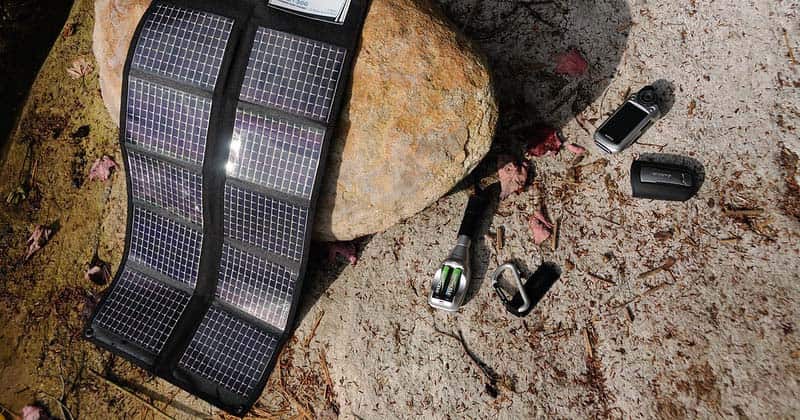
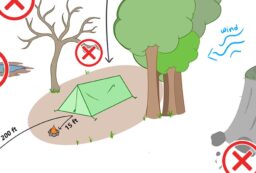
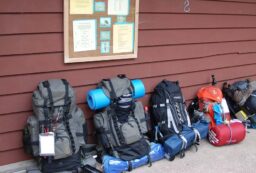
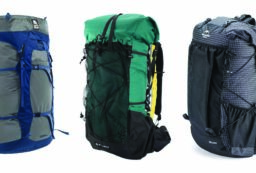







Post your comments